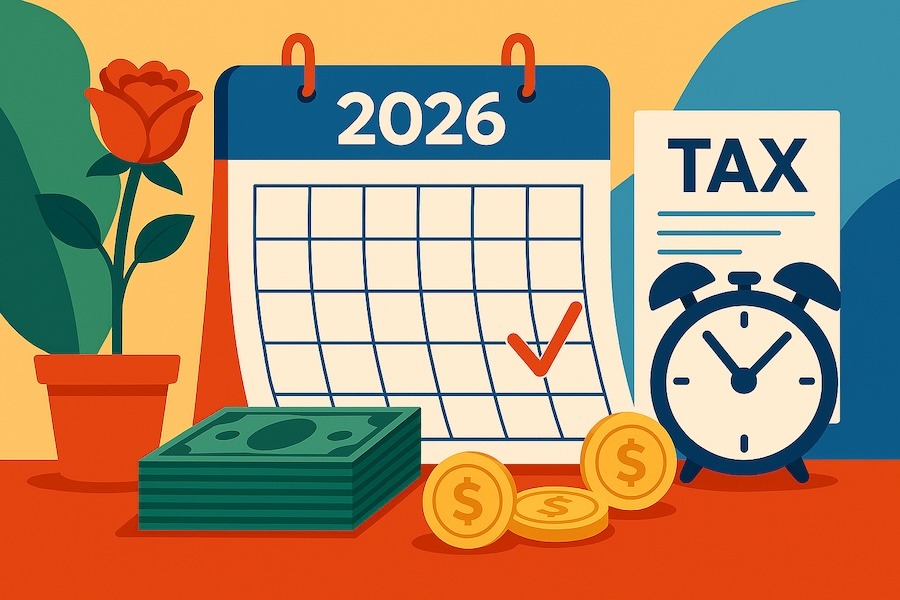Should We Downsize Our Home?

You will often hear it said that the family home is a tax-free investment. This reflects the fact that there is no capital gains tax paid on your principle residence when you sell it. But capital gains tax is only part of the story. There is more than one way for tax to be incurred.
Recently, we read a piece of commentary which pointed out that one of the reasons that house prices are rising so worryingly in Australia is that too few empty nesters are downsizing after their kids leave home. This means there are more younger people wanting to buy family homes than there are older people wanting to sell them. Higher prices ensue.
Specifically, the commentator (who is a demographer) wrote that “Most three-bedroom residences in Australia are home to just one or two people, according to census data. Three-fifths of three-bedroom homes have more bedrooms than people to occupy them. Four, five, six or more bedders, yep, they too are occupied by far less people than they can accommodate.”
This got us to thinking: why are so few people motivated to sell their family home after the kids move out? Part of the reason is almost certainly the financial charges that occur when a person decides to downsize. To illustrate, let’s look at a simple example of a four-bedroom home in a comfortable part of the world. Let’s say the home can be sold (CGT-free!) for $1 million and the owner can then buy a smaller unit of similar quality for $750,000. At first glance, it looks like this owner could achieve a double win: $250,000 in the bank and a smaller house to manage.
But we need to look a bit closer. That $250,000 is a mirage. Downsizing has costs that are often not factored in.
The first major cost is a selling cost. A real estate agent will typically charge 2-2.5% to sell a home (including things like advertising). So, the owner might need to give up to $25,000 of the proceeds of the sale to the selling agent. That would be 10% of the cash that the downsizing is potentially ‘freeing-up.’
In addition, the new place will typically be subject to stamp duty (downsizers do not get first home buyers’ exemptions from stamp duties, for example). Stamp duty varies from state to state, but on a purchase of $750,000, in each of the six states you would expect to pay approximately:
| VIC | $40,070 |
| SA | $35,080 |
| WA | $32,540 |
| NSW | $29,240 |
| QLD | $26,775 |
| TAS | $13,997 |
Added to the agents’ fees of, say, $25,000, you can see that the cost of downsizing can be as high as $65,070 (Victoria) and no less than $38,997 (Tasmania). Throw in, say, $4,000 to convey two properties (the one being sold and the one being bought) and another $4,000 for removalists and the total cost of transfer for each state can start to look like this:
| State | Amount | Percentage of $1m |
| VIC | $73,070 | 7.3% |
| SA | $68,080 | 6.8% |
| WA | $65,540 | 6.5% |
| NSW | $62,240 | 6.2% |
| QLD | $59,775 | 5.9% |
| TAS | $46,997 | 4.7% |
If the family home was this person’s only asset, then we can see that downsizing reduces their asset base by as much as 7.3%. This is a significant hit later in life and is one key reason why people are often reluctant to downsize.
Stamp duty is a form of tax and the tax-based drawback of downsizing is particularly acute if part of the aim of downsizing is to free up cash to live. In the example above, a Victorian will give up almost 30% of the $250,000 in cash that downsizing is supposed to free up. A Tasmanian will get off relatively lightly, giving up just under 19%. Either way, the state revenue office gets a big slice of the benefit.
We have written before about ways to solve the ‘asset-rich, cash-poor conundrum.’ We also wrote a few weeks ago about the benefits of keeping a family home and maybe even concentrating wealth into that asset. In coming weeks, we will write about safe and prudent ways to access the equity in your home that are low-risk and often worth considering. For now, though, can we simply suggest that you come to talk to us before you decide to downsize – especially if you think that downsizing is a great way to free up cash. It may not be.


